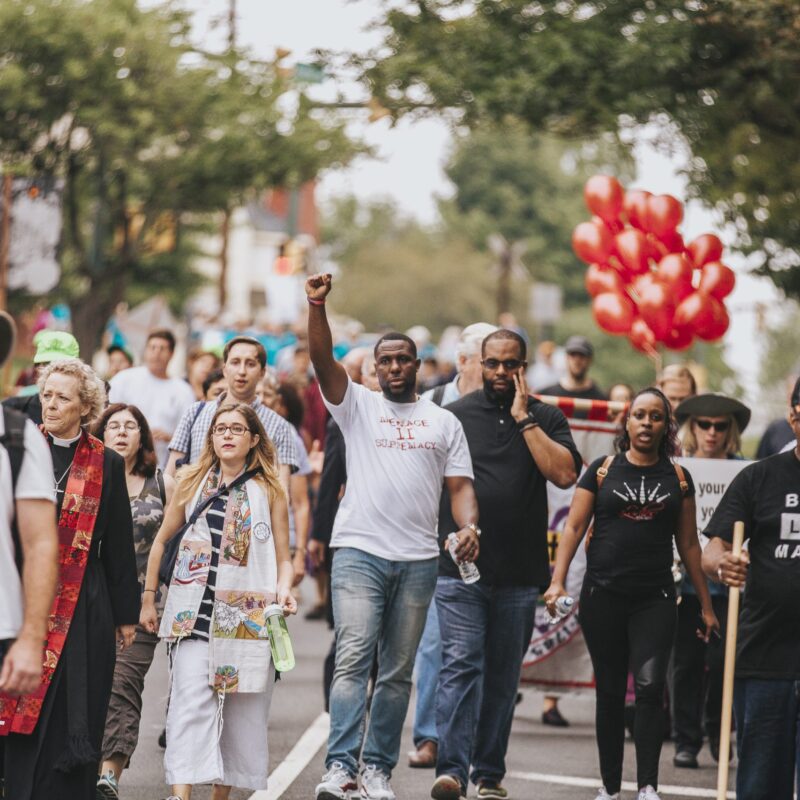A recent Virginia court appearance of accused Hannah Graham abductor Jesse L. Matthew Jr. is raising questions about who will represent him in what could be the most serious and complex set of prosecutions spanning multiple jurisdictions in recent memory.
On Friday, October 31, Matthew appeared via video feed accompanied by his Charlottesville-based attorney Jim Camblos in Fairfax Circuit Court where he’s facing charges of attempted capital murder, abduction with intent to defile, and sexual penetration with an object stemming from a brutal 2005 assault. Matthew, who has been held at the Albemarle Charlottesville Regional Jail since his September 24 arrest on an abduction with intent to defile charge in the Hannah Graham case, requested that the court appoint Camblos to represent him against the Fairfax charges, but Judge Dennis Smith declined his request, instead appointing attorneys from the Fairfax public defenders office to lead Matthew’s defense with Camblos as co-counsel.
Camblos expressed frustration with the decision, describing it in court, according to multiple media accounts, as having “two chiefs, not enough Indians.” In a phone interview with C-VILLE, he maintained that it would be preferable for Matthew, with whom he has developed a “close working relationship,” to have the same attorney handle all charges against him in Northern Virginia and locally.
“I feel an obligation to both him and his family and that’s why I asked to be appointed in Fairfax,” said Camblos.
In addition to the Fairfax charges, Matthew is currently charged in Charlottesville with abduction with intent to defile in the disappearance of 18-year-old UVA student Hannah Graham, whose remains were discovered on October 18 on an abandoned property along Old Lynchburg Road in Albemarle County. The site was about five miles from where the remains of 20-year-old Virginia Tech student Morgan Harrington were found in January 2010, three months after she vanished after leaving a concert at the John Paul Jones Arena. According to police, forensic evidence links Matthew to Harrington’s disappearance and death, and DNA evidence found on her discarded shirt matches DNA collected from the assailant in the 2005 attack. Prosecutors have said more charges in the Graham case are likely.
C-VILLE legal analyst David Heilberg said the judge’s decision to appoint local defenders in the Fairfax case is no surprise.
“It makes a lot of sense for efficiency,” he said. A local attorney is better able to make court appearances with less notice, and would be more familiar with local procedures, which can vary from jurisdiction to jurisdiction.
If Camblos is determined to represent Matthew as lead counsel, Heilberg said, he could allow Matthew to retain him for whatever amount Matthew and his family can afford. That would preclude the need for court appointed counsel, but would also mean that Matthew would be expected to pay for additional services relating to his case including psychiatric evaluations, which Camblos requested in the Fairfax case.
“When you’ve retained counsel, the courts say you should be paying out of pocket,” Heilberg explained, noting that a defendant can still request that the court pay for such services if it rules that they are merited.
Matthew is scheduled to appear in Charlottesville General District Court on December 4 on the abduction with intent to defile charge relating to Hannah’s disappearance, and Heilberg said he believes it’s likely that the Fairfax case will be prosecuted first, given the presence of DNA in the case and the fact that the victim, according to Fairfax Commonwealth’s Attorney Ray Morrogh, is willing to testify.
Heilberg said that proceeding with the Fairfax prosecution first could be beneficial for the other prosecutions.
“It helps Charlottesville and Albemarle,” he said. “They need all the time they can get to gather evidence.”





